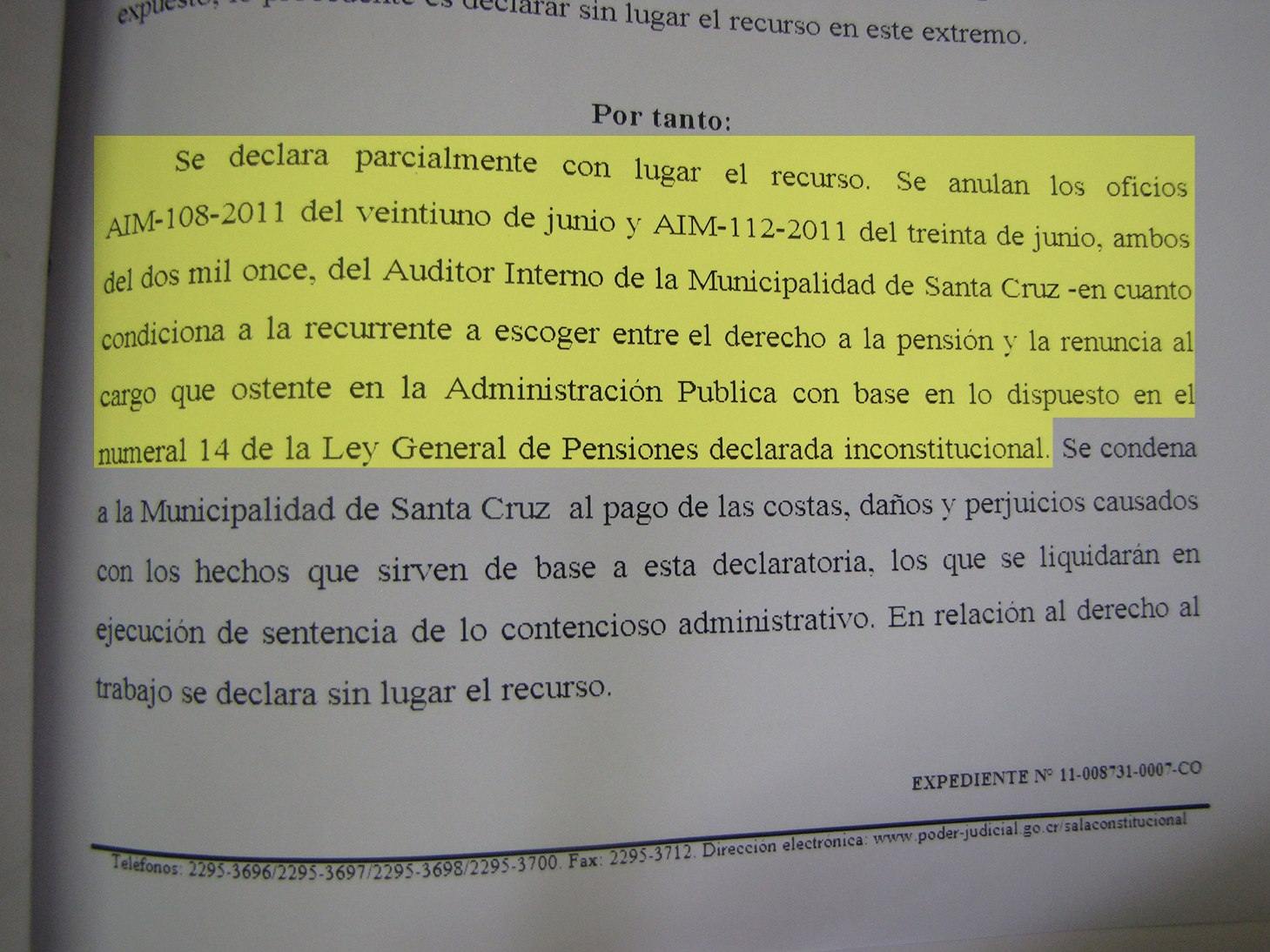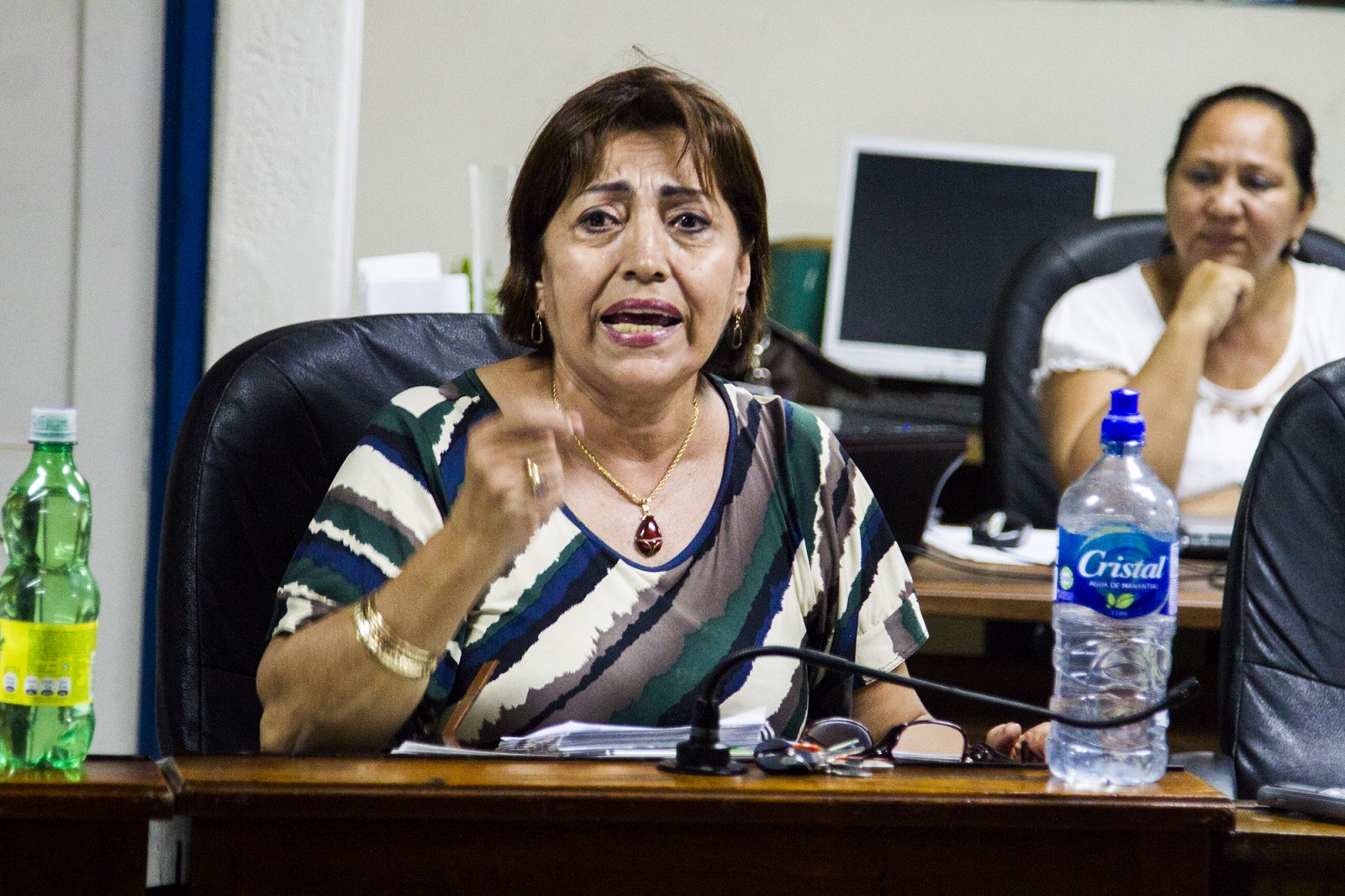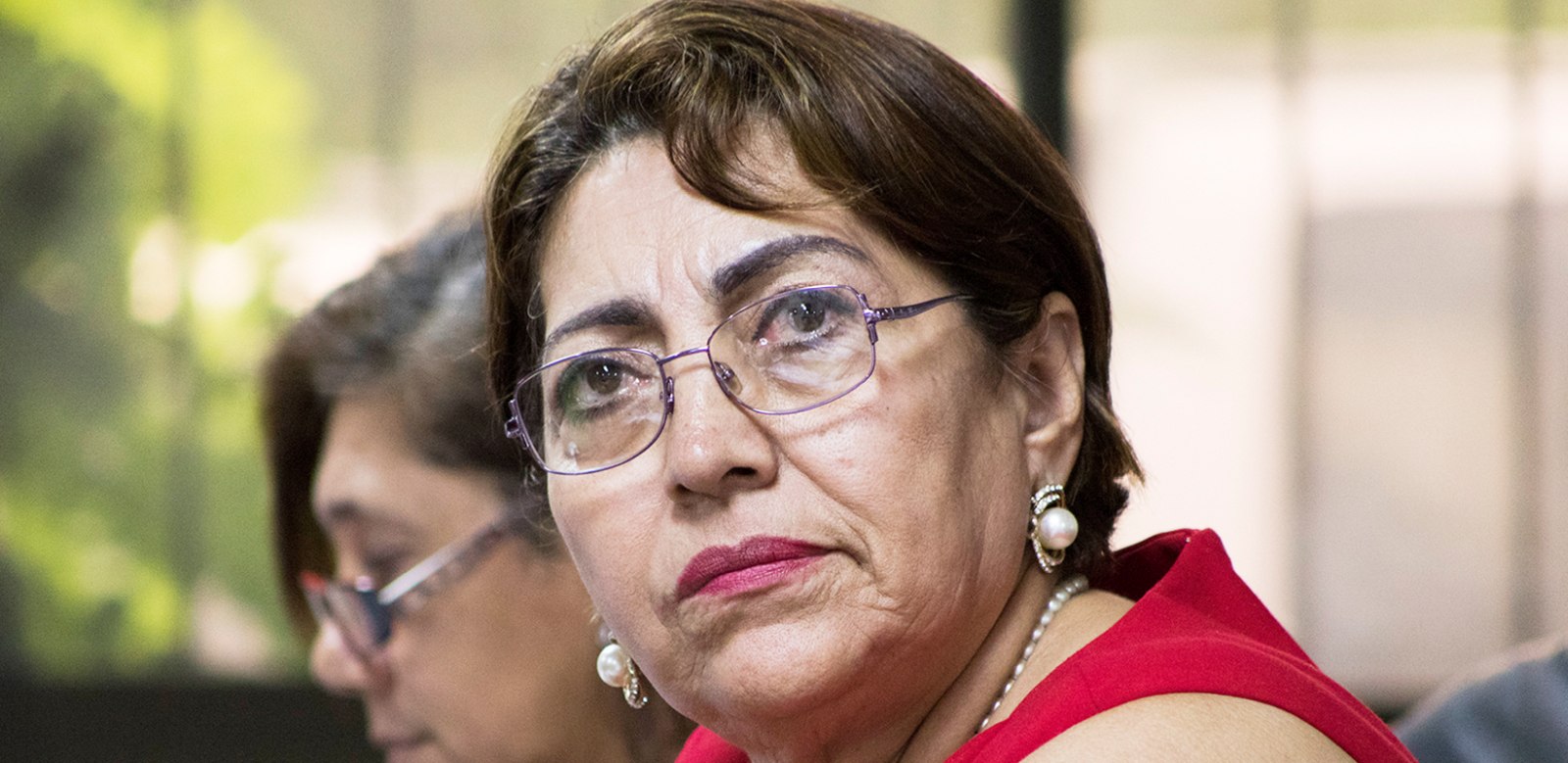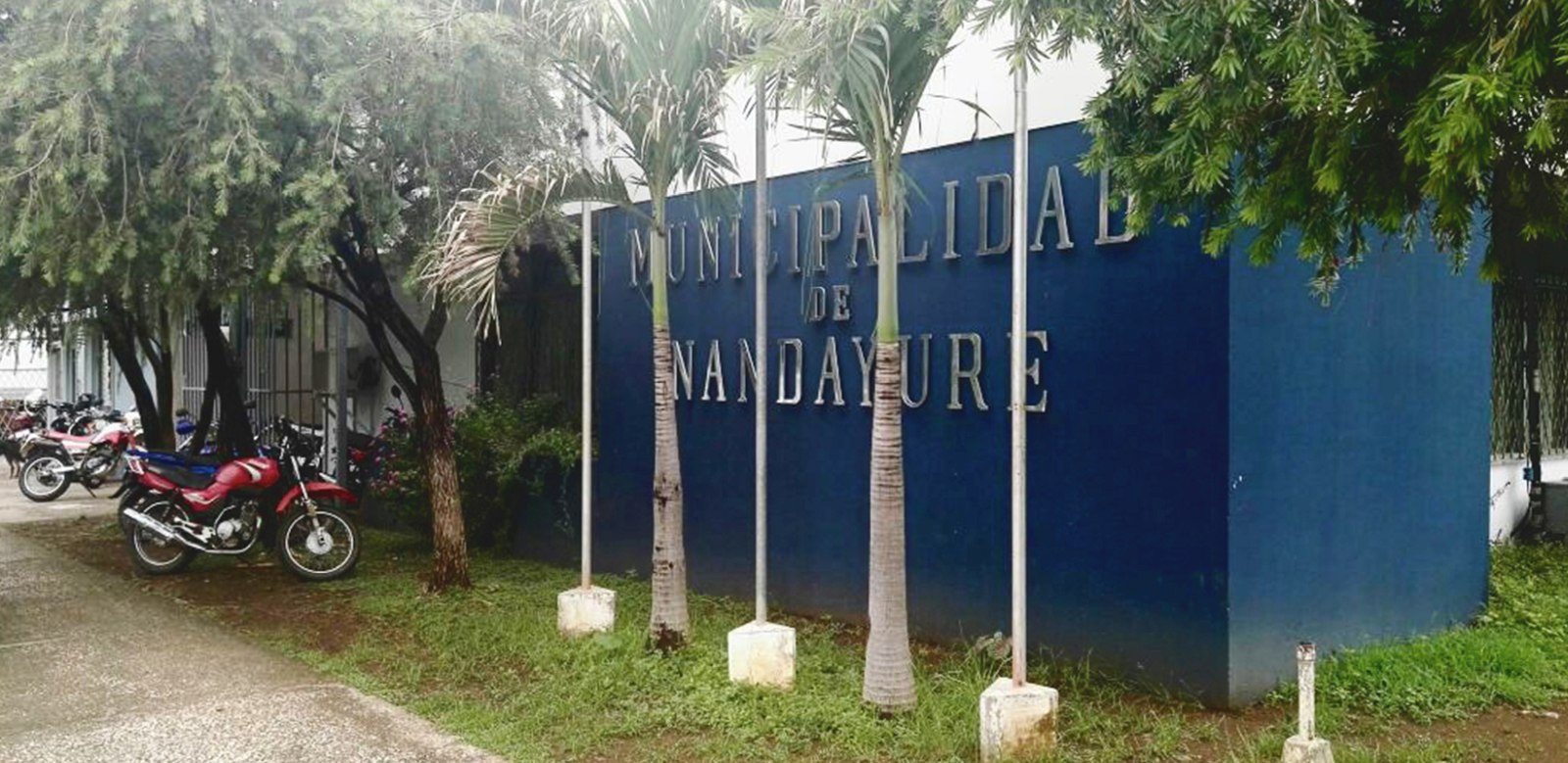
Is it legal for the vice mayor to receive a salary and a pension at the same time? That is the question faced now by members of the Santa Cruz Municipal Council. On Tuesday, April 28th, the council members agreed to consult the Comptroller General of the Republic regarding the legitimacy of these two payments.
Maria Rosa Lopez, vice mayor of Santa Cruz, currently receives a teacher’s pension for her role as an educator, but at the same time she gets a salary as a municipal leader.
According to article 20 of the municipal code, if the mayor is pensioned and does not forfeit that pension, he or she can only receive 50% of the total salary as a reimbursement of expenses, and the same situation applies to vice mayors.
Given this scenario, Lopez filed an appeal in 2011 in the Constitutional Court against the municipality, considering it unconstitutional to forfeit the right to a pension. That appeal was upheld and the municipality was ordered to pay the vice mayor costs and damages.
“If I saw that I’m not in the right, I myself would say no, this can’t be. I have the appeal and I stick to the appeal…. I have the right to a pension because I made all of my payments and now that I’m working, I also have the right to earn a salary,” the vice mayor said to the municipal council members.
The Voice of Guanacaste consulted the municipality’s internal auditor, Alvaro Moreno, who said that he sent a report in 2012 to the comptroller due to considering the double payment illegal.
“I have always said it. She has the right to one [payment] or the other, but not both. We are analyzing the situation and working on a new report since the [Constitutional] Court has issued new criteria,” Moreno commented.
The auditor specified that in February of 2012, the court issued new decisions regarding whether it is unconstitutional to forfeit the pension since the mayor of Tibas, Gonzalo Vargas Jimenez, also appealed to the Constitutional Court, but in that case the appeal was dismissed.
In the case of the mayor of Tibas, the Constitutional Court decided the opposite of in the case of the vice mayor of Santa Cruz. In this case, forfeiting the pension is not unconstitutional, because if someone who receives a pension chooses to work in a paid position, the act is considered voluntary. In addition, when the person who receives a pension leaves the municipal leadership position, he or she can request a review of the pension and increase the figure previously earned.
However, the vice mayor affirms that although there are new criteria, they are subsequent to her resolution and she has not received any notification.
“I stick to what the Constitutional Court told me. I don’t have anything different from what I was told. If we have a superior constitutional entity that defined a matter, logically every citizen trusts it. Unfortunately, the auditor is not above the Constitutional Court. He may have his criteria, but there is a higher entity,” Lopez stated.
For his part, the mayor, Jorge Chavarria, said he will investigate the situation since he believes that if the vice mayor does not forfeit her pension, she can only receive 50% of the salary.
Prohibition Payment Questioned
In addition to receiving the pension payment, the vice mayor takes the extra “prohibition” amount, which is a bonus established by Law Against Corruption and Illicit Enrichment in Public Service (Ley Contra la Corrupcion y el Enriquecimiento Ilicito en la Funcion Publica) so people don’t work outside of the institution to which they belong. This benefit equates to an extra 65% of the base salary.
According to the 2015 ordinary budget, Lopez receives a base salary of ¢2,510,488.23 (about $4,736) but upon receiving the prohibition bonus, her salary increases to ¢4,142,305.58 (about $7,815).
However, the auditor explained that the law states that the prohibition bonus can only be received by officials who graduated in liberal professions and are collegiate association members, but education— the vice mayor’s profession— is not considered as such.
According to a 2014 decision from the attorney general, education is not considered a liberal profession. Liberal professions are all of the ones that can provide services in other places, such as lawyers.
“Ultimately, they say that education is not a liberal profession. I said that education is a fundamental profession for all professions. However, there is an exception, which is the master’s in educational administration, which is considered liberal, and I have that,” the vice mayor affirmed on April 28th during the municipal session.
Nonetheless, according to a consultation made by the municipality’s audit department in March of this year, Florencio Castillo University said that although Lopez did pass all of the courses, she has not yet graduated. In addition, she is not a collegiate association member.
“Primary school educators were not obligated to register as collegiate association members. That was not done until 2008, and I retired in 96 and well, this is where we’re at, because at that time you didn’t register with the collegiate association,” Lopez told the council members.
For now, Moreno is making a new report to be presented to the municipal council and the Comptroller, while the council members await the Comptroller’s decision.

This is the court decision won by Vice Mayor Maria Rosa Lopez on August 26, 2011, which endorsed her receiving her pension.







Comments